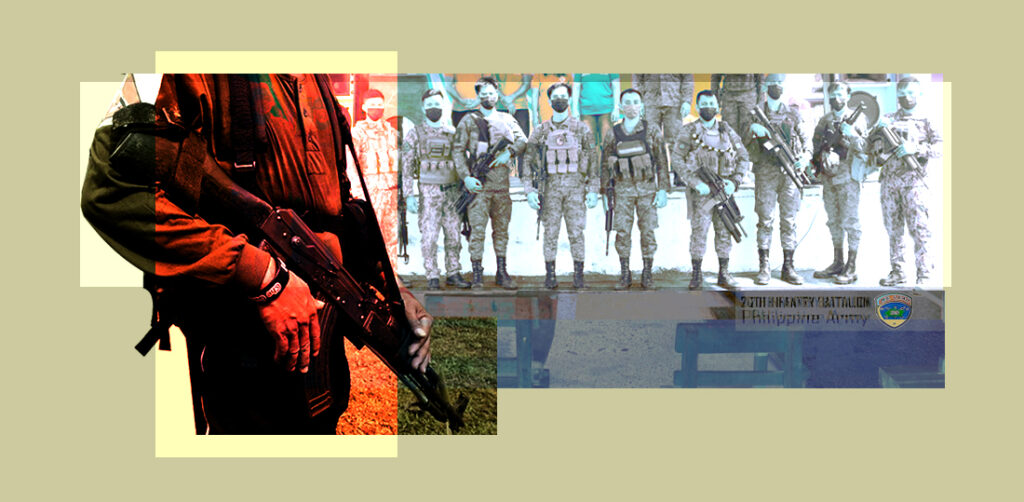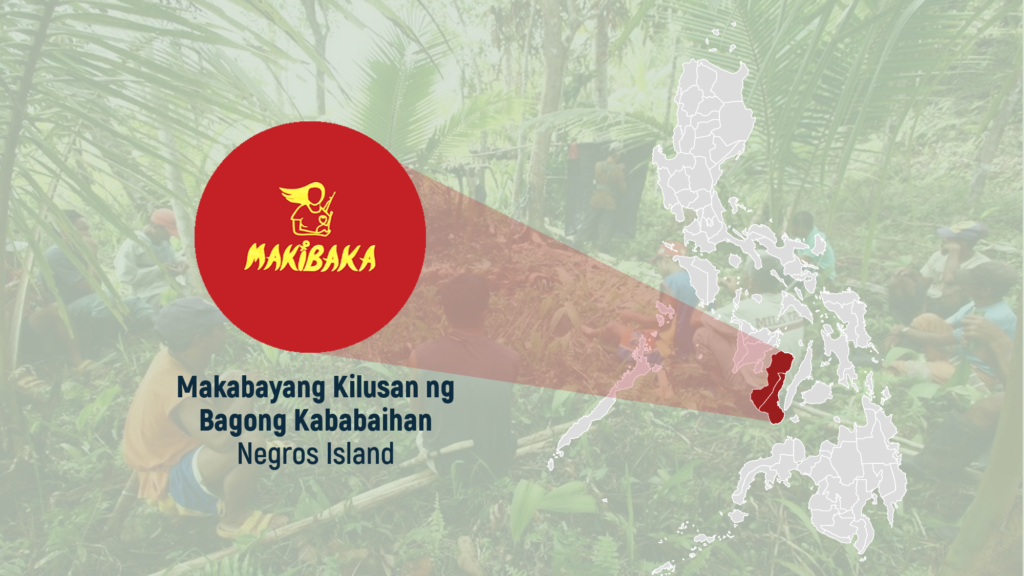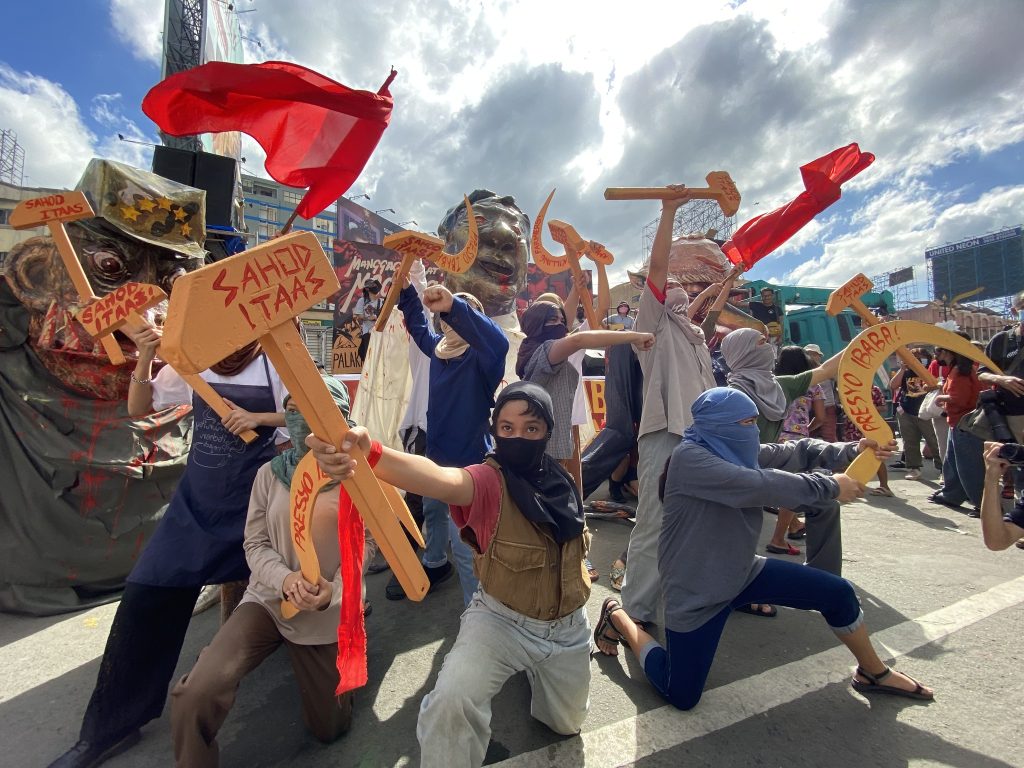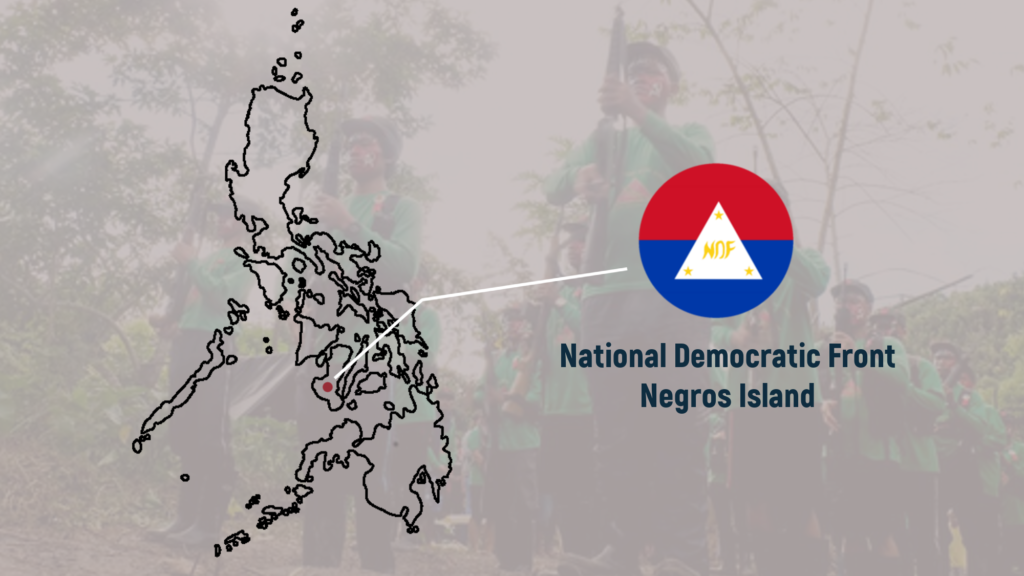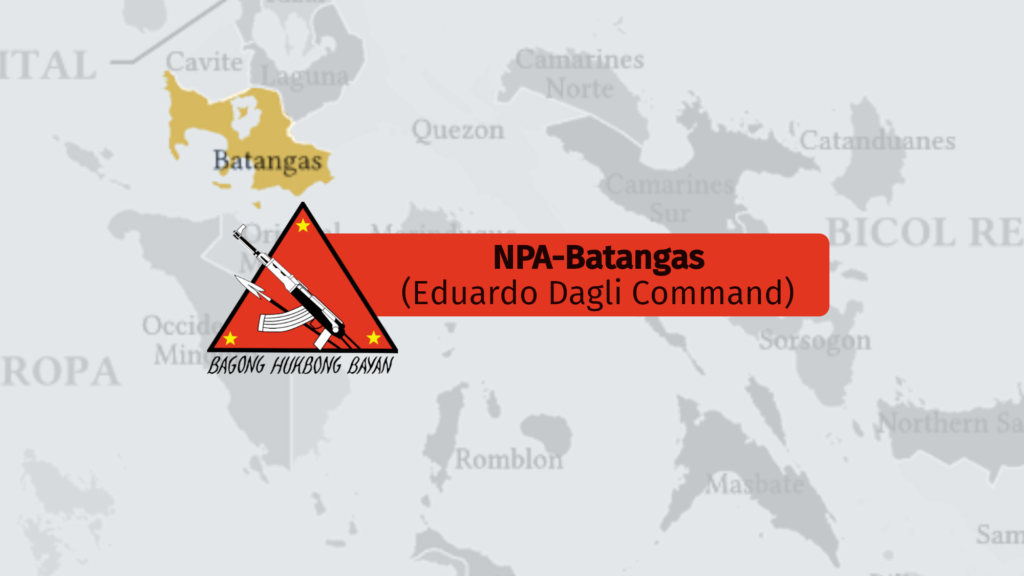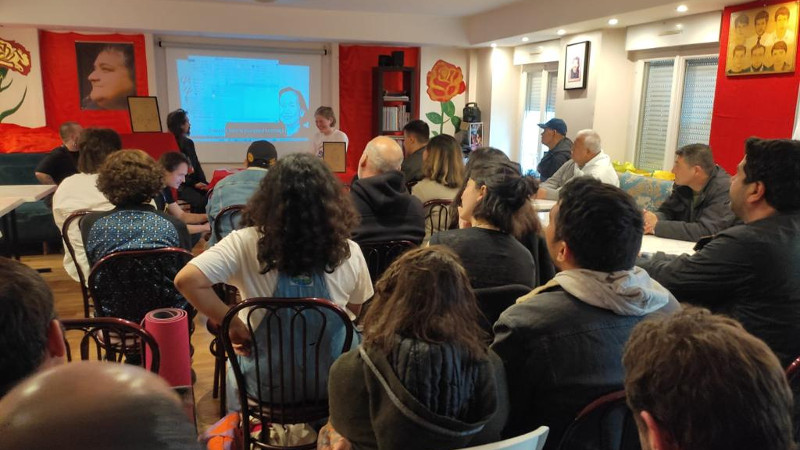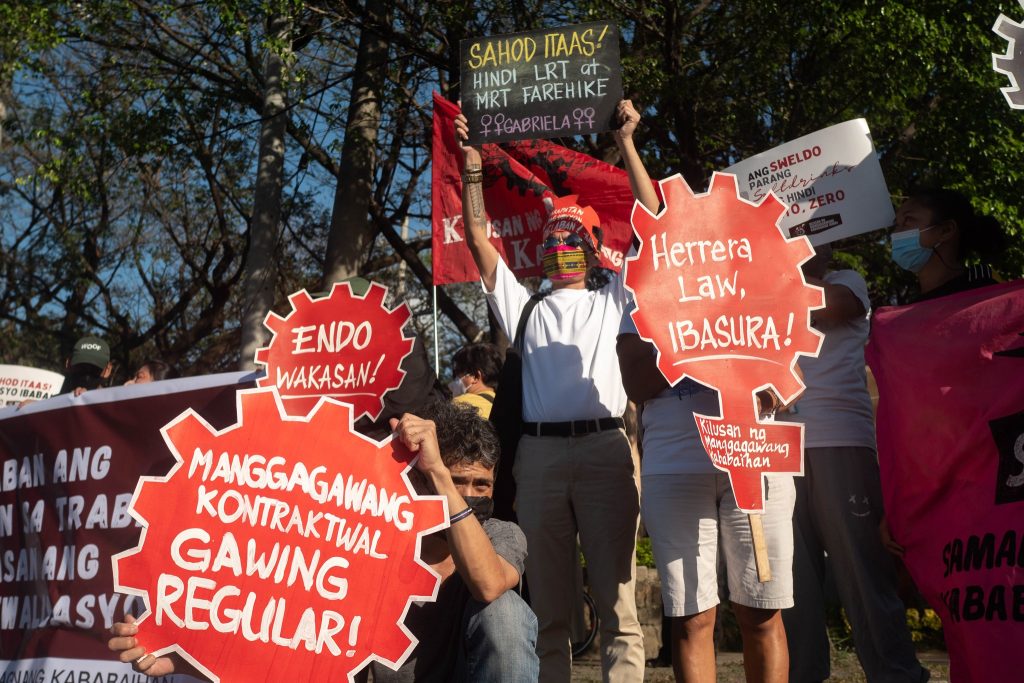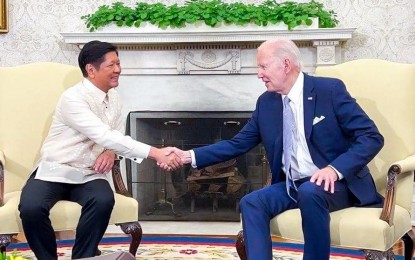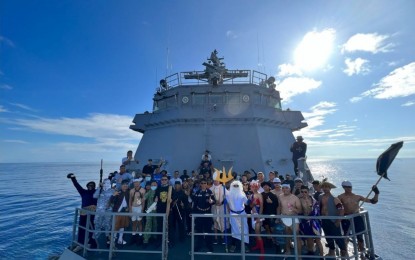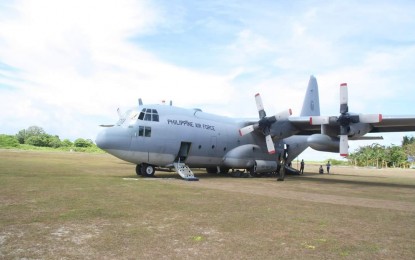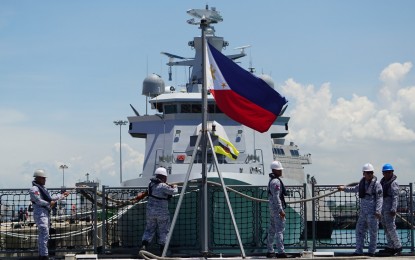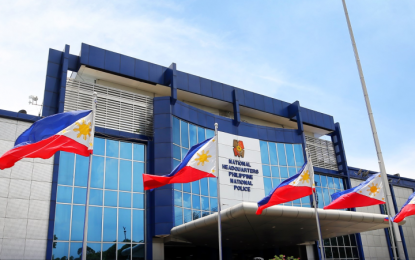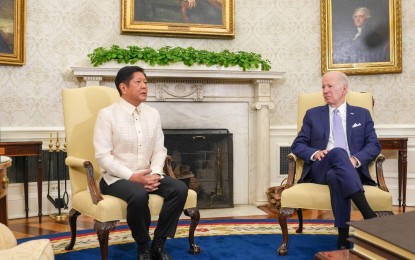Posted to the International Crisis Group (May 1, 2023): Southern Philippines: Making Peace Stick in the Bangsamoro
The newly autonomous area in the southern Philippines is progressing toward full self-rule, but delays in the associated peace process and renewed skirmishes are causing concern. With donor support, regional and national authorities should work to bolster the transition in advance of crucial 2025 elections.The newly autonomous area in the southern Philippines is progressing toward full self-rule, but delays in the associated peace process and renewed skirmishes are causing concern. With donor support, regional and national authorities should work to bolster the transition in advance of crucial 2025 elections.
What’s new? The peace process in the Philippines’ autonomous Bangsamoro region is both largely on track and in peril. For lasting peace to take hold, all responsible authorities must work to quell violent instability, which persists in pockets, and speed up elements of the process that are behind schedule.
Why does it matter? President Ferdinand Marcos, Jr., elected in 2022, has appointed new members to the region’s interim governing body. With only two years remaining before the Bangsamoro is supposed to elect its parliament, concluding the transition to full autonomy, efforts at stabilisation are crucial.
What should be done? The ex-rebels running the regional government should, in coordination with Manila, improve law and order, strengthen conflict resolution efforts and find a modus vivendi with political clans. Manila should focus on normalisation, including delivery of the promised socio-economic packages to demobilised combatants. Donors should help fill funding gaps.
Executive Summary
The Bangsamoro peace process in the southern Philippines, while successful in many respects, is hitting obstacles at a critical moment. In 2019, the Bangsamoro region – home to a majority-Muslim population that has long been neglected in the Catholic-majority country – achieved a degree of autonomy. Self-rule was the result of a 2014 peace treaty, which voters endorsed via plebiscite five years later. The creation of the new autonomous region helped bring about a peaceful resolution to decades of armed conflict between the Moro Islamic Liberation Front (MILF) and the Philippine government. But the region is not quite peaceful yet, and parts of the 2014 deal remain unfulfilled. The regional government, Manila and international donors should work together to shore up the peace process before the 2025 parliamentary elections, which are supposed to mark the start of full regional autonomy. They should focus on quelling local conflicts and accelerating “normalisation”, a process that includes rebel and militia disarmament as well as provision of socio-economic packages promised to ex-rebels as a peace dividend.
Almost ten years after the parties signed the peace deal, several issues are putting the transition it envisaged at risk. For one, violence is flaring up in the region. Some of these skirmishes, especially in central Mindanao, can be traced to conflicts over land and politics between and among MILF members and militias controlled by powerful clans. That is not exclusively the case, however: the ceasefire between the government and MILF suffered a serious breach in November, when a clash in Basilan province resulted in the death of ten soldiers and MILF members. Meanwhile, although the interim governing authority in Bangsamoro has made headway in leading the war-scarred region toward greater peace and development, it has not passed major legislation required to complete the transition – including rules for local governance and procedures for revenue collection.
There have also been delays in normalisation, particularly in reintegrating rebels and allowing for economic development in the Bangsamoro. For example, some former MILF fighters have not received the socio-economic assistance packages the government pledged to give them. The Philippine military and the MILF are also not in full agreement about how many weapons the ex-rebels should hand over. Another difficult point is “camp transformation” – ie, the process of turning erstwhile MILF-controlled areas into peaceful communities integrated into economic and civic life. Much of the Bangsamoro is economically depressed, and the MILF camps need significant support in order to develop. The normalisation program aims to get them that assistance. For now, however, the effort is sputtering, due partly to slow implementation but also to political realities. There are also concerns about development happening at the expense of Indigenous communities.
There is still reason to hope that the [Bangsamoro peace] process can succeed.There is still reason to hope that the process can succeed. After winning election to the presidency of the Philippines in May 2022, Ferdinand Marcos, Jr. emerged as a supporter of the peace effort. It was not at all certain he would take that stance, in part because the MILF leadership endorsed his opponent. When political clans in the region who had backed Marcos, Jr. pressured him to increase their level of representation in the interim Bangsamoro parliament, he refused. He and his advisers attended the parliament’s inaugural session in the regional centre, Cotabato City, a move that signalled his commitment to the peace process. On 21 September 2022, in a speech at the UN General Assembly, he pointed to the progress of the Bangsamoro peace process to date and proposed making its completion a pillar of the Philippines’ bid for a seat on the UN Security Council in 2027-2028.
Moreover, while the Bangsamoro’s interim government still has work to do, it has racked up important accomplishments. In March 2023, it passed an electoral code that will allow residents to elect members of the regional parliament in two years’ time. The interim authority has also built hospitals and village halls as well as spearheaded agricultural programs. Some sub-regions even recorded economic growth during the COVID-19 pandemic.
Still, as stresses that threaten to impede conclusion of the peace process become more pronounced, it is incumbent on both regional and national leaders in the Philippines to address them. A big obstacle to enduring peace in the Bangsamoro is clan politics: powerful families dominate the region politically and economically. They hold most of the region’s seats in the national congress and control many of its provinces and municipalities. Relations between the ex-rebels and clans were rocky even before the 2022 local and presidential elections, and tensions grew as the elections cemented the big families’ role in regional governance. The clans often employ what amount to private armies: some of the violence in the region can be traced to tussles between them and the ex-rebels. Although these militias pose no threat to national security, Manila needs to get serious about dismantling them.
As normalisation efforts proceed, the Philippine government and the former rebels also need to resolve questions about the support packages promised to ex-militants and the number of weapons the MILF is to turn in. If Manila is short of funds to deliver the socio-economic dividends, the national government should reach out to international donors for aid. A risk persists that MILF members may pick up arms, or refuse to disarm, out of frustration that the transition is failing to bring them the benefits they expected or fear that the Bangsamoro’s political families could push the MILF out of the regional leadership. Taking steps to disburse the support packages, as well as finding ways to deal with the political aspirations of all the region’s factions, will help keep the transition on track.
A successful Bangsamoro peace process would benefit the region and set a positive example for the rest of the world. Outside supporters of the process can help achieve its aims. International donors, in particular, should ensure that Manila has the resources it requires to deliver support packages to demobilising fighters and pursue the transformation of MILF camps. Now that the new president has aligned himself with the process, they should urge him to work closely and in the spirit of compromise with the MILF and other Bangsamoro political leaders so that opportunity for peace does not slip through their fingers.
Manila/Brussels, 1 May 2023
I. Introduction
Born in 2019, the Bangsamoro Autonomous Region in Muslim Mindanao (BARMM) is the latest attempt by the Philippine government and former rebels to end a long-running separatist struggle in the southern Philippines.
1 The outcome of decades of negotiations, the BARMM provides a form of self-rule to the majority-Muslim region, a sprawling zone of islands, river deltas and mountains with a population of about 4.5 million.
2 The grant of autonomy is an effort to address the Moro Muslims’ demand for the right to self-determination, rooted in resentments that date back hundreds of years.
3The most recent insurgency started in the late 1960s, when communal unrest led to war between the separatist Moro National Liberation Front (MNLF) and the Philippine military. In the following years, the Moro Islamic Liberation Front (MILF) emerged as a splinter group of the MNLF, continuing an armed conflict that lasted four decades.
4 In 2014, after more than 40 years of fitful negotiations between the Philippine government and Muslim secessionist fronts, Manila and the MILF inked a peace deal. In 2018, the Philippine congress passed the Bangsamoro Organic Law, the legal instrument for creating the Bangsamoro autonomous government. Voters in Mindanao emphatically endorsed the law in a two-stage plebiscite in early 2019, which ratified the new autonomous region and determined its geographical scope. The plebiscite also greenlit the launch of the Bangsamoro Transition Authority (BTA), an interim government that gained authority over the region in February 2019.
The new transitional authority has administrative powers as well as some political and fiscal clout and the authority to enact laws. Manila did not, however, allow the region to have its own police force, citing constitutional impediments. (The peace deal talks about one, though that seems unlikely to happen.)
The fledgling authority is taking shape as parliamentary committees develop legal codes that will be the backbone of the future government. The region has exclusive jurisdiction over policy areas such as government budgeting and local administration, while in other areas, for example security and land registration, it shares power with Manila.
5 Although not elected, the transitional administration is fairly reflective of the Bangsamoro’s diversity. It comprises 80 members: 41 nominated by the MILF ex-rebels and 39 by the government in Manila. Among its members are women (making up 20 per cent of parliament), youth, Christians and Indigenous people as well as former insurgents, traditional politicians and clan affiliates – drawn from all the region’s ethno-linguistic groups. While only a few clan patriarchs sit in the BTA, many of its members belong to prominent families.
The real test of the Bangsamoro’s durability as an autonomous entity will be the region’s inaugural parliamentary elections.The real test of the Bangsamoro’s durability as an autonomous entity will be the region’s inaugural parliamentary elections. These were originally scheduled for 2022, but in October 2021, then-President Rodrigo Duterte extended the interim government’s term for three years per the request of MILF leaders, who argued that COVID-19 had hamstrung their efforts to amass policy accomplishments. The 2025 elections will offer the first opportunity for Bangsamoro residents to elect their local representatives, and they may reveal whether the MILF has won over the public during the period in which it held control of the interim authority.
The elections will mark an important, and potentially dangerous, moment for three major reasons. Firstly, the vote will show whether the peace process has positively affected the political culture in a region accustomed to strongmen acquiring power through violence rather than the ballot box. Secondly, if the MILF fears it may lose the elections because political clans are using vote buying, patronage and intimidation, the ex-rebels could in the worst case deploy the same tactics to counter the traditional elites, undercutting decades of work to foster peace in the Bangsamoro. Thirdly, if the vote does cost the MILF power, there is a risk that a splinter group of rebels could return to arms.
Against this backdrop, and building upon Crisis Group’s previous work on the subject, this report examines the successes and challenges of the peace process in the Bangsamoro and highlights the steps various actors need to take to prepare the way for a peaceful transition. It draws on field research in the Bangsamoro and Manila, conducted over the last year, including interviews with MILF and military commanders, representatives of the interim regional government, national and local officials, civil society figures, clan leaders, donor and development officials, villagers and decommissioned fighters.
II. An Incomplete Transition
As parliamentary elections approach in 2025, there is both good and bad news with respect to the Bangsamoro transition. On one hand, the election of Ferdinand Marcos, Jr. as the Philippines’ new president does not appear to have derailed the process. Marcos, Jr. has kept key personnel in place in the interim government and sent positive signals about his support for its efforts. The MILF-led interim government also has meaningful accomplishments to tout. But the concrete work of fulfilling the peace agreement is nevertheless lagging in ways that could jeopardise the transition’s ultimate success.
A. From Duterte to Marcos, Jr.
Since its inception in 2019, the Bangsamoro government has made progress, ushering in a degree of peace and development that had long eluded the region. The economic situation in parts of the territory has improved as Moro rebels and government forces fight each other less and less. For almost two years, however, COVID-19 forced the transitional authority to put much of the region’s institution building on hold in order to focus on the pandemic response.
6 The parliament has passed only three of the seven “priority codes” legally required as part of the process to replace former laws with new rules governing elections, regional government, education, the civil service and other local matters.
7 The decommissioning of former MILF guerrillas – a key component of the peace process – was at a standstill until late 2022. In part because of these delays, the MILF-led interim government pushed to postpone the parliamentary elections, originally scheduled for 2022, by three years. The heated debates over the extension had the unfortunate effect of taking away precious time from attention to governance.
While President Duterte’s government agreed to the election extension in 2021, the ex-rebels in the transitional government found themselves at loggerheads with several Moro clans that opposed it.
8 These clans hold little power at the regional level in the interim setup, and so were eager for an opportunity to bring about its demise, or take it over, sooner rather than later.
Frictions [between ex-rebels and several Moro clans] became even more pronounced in the run-up to the May 2022 local elections in Bangsamoro provinces and towns.Frictions became even more pronounced in the run-up to the May 2022 local elections in Bangsamoro provinces and towns. The MILF, through its political arm, the United Bangsamoro Justice Party, fielded candidates who challenged traditional politicians in the provinces of Maguindanao and Basilan, and the regional seat of government, Cotabato City. Despite holding the top offices in the interim administration, the ex-rebels used these local campaigns to frame the contest as a battle between what they called “the forces of change and the forces of the status quo”.
9 The elections were the first in which the ex-rebels entered candidates, and the outcome was mixed. The party of former insurgents won the mayoral seat in Cotabato City but secured only a few other positions in the autonomous region.
10 At the national level, the MILF endorsed Marcos, Jr.’s main opponent in the 2022 presidential race, Leni Robredo, a quiet but well-known supporter of Bangsamoro autonomy and the peace process.
11 The MILF’s rivals among local political elites, in contrast, supported Marcos, Jr., who remained vague about his vision for Bangsamoro throughout the campaign. Political clans and their candidates won in most provinces and municipalities, and also delivered votes to Marcos, Jr. in the presidential election, contributing to his landslide victory in the region.
12 Marcos, Jr. even secured votes of some former rebels and their communities, benefiting from their dissatisfaction with the interim government.
13Marcos, Jr.’s win put the MILF in an uncomfortable position. Some in the movement feared retribution for having endorsed his opponent.
14 The MILF had no direct link to the new president, in contrast to its connections with his predecessor, Duterte, who hailed from Mindanao. Marcos, Jr., moreover, was on excellent terms with Mindanao’s Moro clan elites, who run provinces and towns in the region. While the ex-rebels struggled to get an appointment with the new president, the clans that had secured his victory in the region met with him repeatedly.
The clans told the new president in Manila that the ex-rebels had failed to deliver good governance and they requested changes to augment their own power, including more posts for themselves in the local parliament and key slots in the regional cabinet. Some clan leaders apparently lobbied for the chief minister position, trying to unseat the former insurgents from the most important office in the autonomous region.
15 Some political families, and even members of Marcos’ entourage, also expressed scepticism about the head of the Office of the Presidential Adviser on Reconciliation and Unity (OPAPPRU), Carlito Galvez, Jr., a Duterte appointee whom they perceived as too sympathetic to the MILF. During the presidential campaign, and in the immediate aftermath of his victory, Marcos, Jr. said almost nothing about the future of the peace process, creating uncertainty about his commitment to take it forward.
16In the end, Marcos, Jr. kept the peace process architecture intact. To the relief of the MILF, he preserved the ex-rebels’ parliamentary majority in the transitional authority, which could have been threatened if the new president had decided to reward his allies in the region. He reappointed MILF Chairman Al-Haj Murad Ebrahim as chief minister, which was a boon for Bangsamoro governance. He declined to give the political clans that had supported his candidacy more seats in parliament.
17 In October 2022, the president also reappointed Galvez as chief adviser on peace and reconciliation.
18 He then named Galvez secretary of defence, something the MILF welcomed, before appointing another retired general, Isidro Purisima, as acting peace adviser.
19 The Intergovernmental Relations Body, a mechanism to ensure coordination and collaboration between Cotabato and Manila, remains in place.

President Ferdinand Marcos Jr (L) speaks with Murad Ebrahim, interim chief minister of Bangsamoro Autonomous Region of Muslim Mindanao in the ceremonial opening of the Bangsamoro Transitional Authority in Cotabato City, Philippines. September 15, 2022. STR / AFPIn addition to signalling commitment to the peace process, President Marcos, Jr.’s appointments to the transitional authority made it a bit more inclusive. In what many observers consider to be a politically adept move, he appointed representatives of the MNLF’s different factions, including the son and daughter of famous Moro rebel leader Nur Misuari.
20 In addition, he modestly increased the number of women and youth in the interim parliament.
21 The body is not perfectly representative: Marcos, Jr. did not bring in more Indigenous representatives, and Manila (and to an extent the MILF through its own nominees) did not augment the number of parliamentarians from smaller Moro ethno-linguistic groups.
22 But it is more so than it used to be.
After the round of fresh appointments, the new presidential administration publicly promised to uphold the peace process and to fully implement the peace deal. Marcos, Jr. and his advisers attended the inaugural session of the Bangsamoro parliament in Cotabato City.
23 A few days later, on 21 September 2022, he cited the success of the Bangsamoro peace process in a speech at the UN General Assembly as qualifying the Philippines to contend for a seat on the UN Security Council during the 2027-2028 session.
24Marcos, Jr.’s family history may play a role in the way he finally embraced the peace process. Government officials have told Crisis Group that the Marcos, Jr. administration has a “unique opportunity” to finish what Marcos, Sr. started when he signed the 1976 Tripoli Peace Agreement with the MNLF, the first accord between the government and a Moro group.
25 Whatever the exact motives of Marcos, Jr. for investing himself, his gestures ended months of uncertainty surrounding the future of the peace process.
26B. What’s Next for the Transitional Authority
The 2022 elections and Marcos, Jr.’s appointments did not radically change the interim government. The majority of parliamentarians kept their seats in the BTA, and only minor reshuffles occurred in the cabinet and ministries.
27 Members of the transitional authority have been talking about dividing ministries to accommodate influential Moro leaders or bureaucrats not included in the new parliament, but whether they will do so remains to be seen.
28The interim’s parliament main’s task for now is the passage of the remaining legislative codes. Members of parliament are already debating how to amend the local government codes the MILF majority introduced in late 2022. Chief Minister Ebrahim announced that the interim authority would pass the codes in the first quarter of 2023.
29 With the passage of the electoral code in March 2023, the most prominent items left are two codes that would set out the rules for local government and procedures for revenue collection.
30Apart from such institutional reforms, the transition envisages the interim government delivering “peace dividends” to the region, both in terms of concrete benefits but also a more general sense of bringing peace. Opinions vary as to whether the new regional setup has fulfilled this mandate. A local bureaucrat told Crisis Group that the interim government “does a lot, but it is hard to see for the common people”.
31 Under the interim government’s stewardship, the autonomous region in fact has made progress. It has built hospitals and village halls; put various agricultural programs in place; and allocated funds for social welfare, education and health. The region weathered the COVID-19-induced economic crisis, with some sub-regions even recording economic growth during the pandemic. In 2021, the region’s agricultural and fisheries output was the country’s highest by value.
32 Criticism of the interim government is widespread and, in many cases, warranted.Still, criticism of the interim government is widespread and, in many cases, warranted. A former government official said development is “uneven”.
33 A chunk of the Bangsamoro’s economy, especially the public sector, remains controlled by clans and local elites who sometimes undermine the interim government’s efforts. The uncertain security situation, meanwhile, discourages investment from outside the region.
34Critics also argue that the Bangsamoro could more efficiently spend the money Manila sends to the region in the form of a block grant (a device that allows the region wide latitude and is meant to promote its fiscal autonomy): if the regional government engaged in more timely and transparent budget deliberations, these critics argue, funds could be allocated more expeditiously. But even then, its ministries and departments would also need to improve their absorptive capacity and skills to make use of the funding.
35 Even MILF leaders themselves admit they could improve their track record in this area.
36 There also appears to be growing discontent about perceived corruption and nepotism in the bureaucracy.
37Bangsamoro authorities and international supporters are attempting to update development plans for the region and passage of priority legislation is under way. Still, observers are getting fed up with the delays that emerged in the course of the pandemic but are also attributable to unrelated challenges with which the interim government has struggled.
38 A civil society activist complained: “All this planning only touches the surface. We need implementation”.
39C. Decommissioning Challenges
A vital component of the peace process is phased disarmament, or decommissioning, of the 40,000-strong Bangsamoro Islamic Armed Forces, the MILF’s armed wing.
40 After the pandemic hiatus, the third phase of decommissioning resumed in September 2022 and should wrap up in the second quarter of 2023.
41 So far, the third-party Independent Decommissioning Body, together with the central government and MILF, has decommissioned 4,625 weapons and 24,844 combatants, or around 62 per cent of the total rebel force.
42 While there is no official timeline for working through the remaining caseload, officials in Manila are optimistic that the fourth and last phase could begin in 2023, allowing for all the rebels to demobilise before the end of the transition period in 2025.
43 The national military ... has raised concerns about the decommissioning process.The national military, however, has raised concerns about the decommissioning process. First among them is the disconnect between the declared number of fighters (40,000) and the number of weapons (7,200) listed for decommissioning, which the military suspects means the ex-guerrillas will be holding onto many firearms.
44 Both parties were clear at the outset that decommissioning would exclude privately owned and borrowed firearms, but as the process advances the military is pushing to confiscate more guns.
45 For now, government officials are informally proposing a 1:1 ratio between fighters and arms in the fourth phase, which would mean that 9,000 to 10,000 firearms could be decommissioned.
46 That is unlikely to happen, for reasons discussed below, but the fact that the military is holding firm on this demand demonstrates lingering discomfort with the MILF holding so many weapons.
The armed forces and other critics have also expressed concerns about the list of combatants that the authorities are using for the decommissioning process.
47 Rather than submitting the entire list to the decommissioning body from the inception of the process, the MILF has only done so at the beginning of each phase. These lists, moreover, are confidential and shared only with the decommissioning body.
48 This arrangement has drawn flak, since in the beginning the parties had spoken about one complete list. More dubious is that the MILF alone decides who figures on these lists, and the decommissioning body is only tasked with verifying the identities (as opposed to the affiliation) of those listed. As a result, critics allege that, in some instances, individuals decommissioned were not bona fide MILF members.
49 That, in turn, allows them to claim money they are not entitled to. It also means that some legitimate fighters have not in fact handed over their arms.
D. Other Implementation Challenges
Decommissioning is only one of several steps envisioned as part of the peace process, in a package of measures known locally as “normalisation”. The full package includes financial and other benefits for ex-fighters; measures turning ex-rebel encampments into peaceful communities (which the peace deal says would “progress”, meaning become more developed, over time); and moves to disband private militias. On all these fronts, the process has fallen behind schedule.
50One of the most contentious issues is the central government’s promised socio-economic package for ex-combatants. All those decommissioned have received $1,800 in cash. But the government has not, for the most part, provided other benefits such as housing, health and education allowances.
51 Among the MILF’s ranks, there is a widespread belief that the government has promised 1 million pesos [around $17,960] worth of support to each decommissioned combatant.
52 Government officials have been equivocal on this point; some say the package was contingent on a scenario where the MILF decommissions one gun per fighter (the so-called 1:1 ratio); other officials say the benefits package is in fact flexible (read: not as generous as the ex-rebels claim).
53 In any case, Manila estimates that it will disburse the cash and deliver other parts of the package by 2027.
54 But locals and the ex-rebels worry that once the MILF’s force is dismantled, the government will have few incentives to stick to its part of the bargain.
Another contested point is the “camp transformation”, an ambitious but incomplete program for transforming the main MILF camps into productive communities.
55 The process has recently gained momentum with the creation of a centralised multilateral donor pool, the Normalisation Trust Fund, which is aimed at better coordinating assistance. Several projects are now in the pipeline.
56 But there are unresolved questions over issues such as land ownership, especially when it comes to non-Moro Indigenous communities living near the camps.
57 In recent years, Moro armed groups have encroached on these neighbouring areas, on some occasions violently.
58 The encroachment sparks conflict with Indigenous groups, who claim that the MILF and powerful Moro clans neglect their concerns, or worse, pay lip service to granting them equal rights with no intention of doing so.
59 Local instability and a lack of alternatives ... have made it impossible for the armed forces to leave [the Bangsamoro].Other aspects of the deal also appear to be contested. The MILF’s insistence on the creation of a Bangsamoro police force, stipulated in the peace treaty, but subject to unsettled interpretation, remains a distant prospect, and is unlikely to gain momentum under Marcos, Jr.
60 The central government has yet to fully roll out the amnesty promised to ex-rebels. President Duterte set up a National Amnesty Commission to determine eligibility, and Marcos, Jr. has appointed a chair for the commission, but other specifics remain pending.
61 Lastly, despite the peace deal’s requirement that the military redeploy its forces from and inside the Bangsamoro, local instability and a lack of alternatives (including the police force conundrum) have made it impossible for the armed forces to leave.
62Meanwhile, the process of disbanding private armed groups, ie, militias employed by local politicians, has made headway – but only haltingly. Getting rid of these armed groups is necessary to make Bangsamoro more stable.
63 According to government data, the National Task Force on the Disbandment of Private Armed Groups has so far dismantled fifteen small militias comprising 94 members in total, who gave up 86 firearms.
64 But several sources told Crisis Group that power brokers in parts of Maguindanao and the Special Geographic Area, an administrative district encompassing 63 villages that formerly belonged to Cotabato province, have created new private armies and expanded the existing militias’ arsenals.
65Locals are worried not only about the presence of these “goons” but also about the violent political culture they represent.
66 Indeed, despite the MILF’s leadership role at the regional level, several local elites continue to impose their will on communities with impunity.
67 The presence of these militias is one of the reasons why MILF fighters hesitate to give up their guns. Overall, according to estimates, as many as 100,000 unlicenced firearms are in circulation in the Bangsamoro.
68E. Understanding the Slow Pace
Besides the rebels’ fear of surrendering weapons too quickly, other factors have slowed implementation of the peace deal. Financial constraints and bureaucratic inertia are also contributing to delays: the government argues it lacks resources to cover interventions such as the decommissioning packages and camp transformation, which were envisioned as part of normalisation. Manila has suggested that the MILF use part of the block grant for such purposes.
69 Some, including a number of MILF officials, consider that option viable, at least in theory. Others, however, point out that the peace agreement clearly states that financial responsibility for normalisation lies with Manila.
70Another challenge is the lack of coordination between the various government bodies charged with bringing normalisation to fruition. For example, the two task forces for camp transformation and decommissioned combatants need to work together, not least because their geographical coverage overlaps. They appear, however, to be operating largely on their own.
71 The government and MILF have convened workshops and consultations to encourage more cooperation, but little has changed in practice.
72Differing views within the Philippine government and MILF about normalisation’s progress make the next steps trickier. MILF leaders stress that, while the peace process – particularly decommissioning – has made significant gains, it is important “not to trivialise the rest”. “Cutting corners” would be inconsistent with the peace agreement, they add.
73 For their part, government officials highlight their past accomplishments and emphasise the need for patience, however slow or cumbersome the process may be.
74 Residents appreciate the presence of international actors in the Bangsamoro.As for international partners, for the most part they remain supportive of the peace process. They are contributing to the Trust Fund and have developed initiatives to help the transition’s political and normalisation tracks along.
75 The European Union (EU), for example, has conducted trainings in public administration. Japan and Australia have provided workshops on human resource management and conflict-sensitive development planning in the camps. Residents appreciate the presence of international actors in the Bangsamoro, be it through direct engagement in development projects, regular visits or attendance at events, such as inaugurations or program launches. Showing up sends an important symbolic message.
76But the donors are not always fully aligned. Some stressed to Crisis Group that funding is not limitless.
77 Others made clear that they have varying perspectives about how they regard the Bangsamoro’s challenges and needs.
78 Some are only willing to support programs that prioritise the political over the normalisation track, preferring to focus on governance and administration rather than ex-fighters and their concerns.
79 The Philippine government has its own perceptions of each donor, which also makes program development complex. The lack of strategic donor alignment and coordination is not insurmountable, but it means that funding is not used as effectively as it could be – and slows the transition to full regional autonomy precisely when the process needs to speed up.
III. The Role of the Clans
A successful transition in the Bangsamoro will hinge, among other things, on reaching a modus vivendi that satisfies the national government, the ex-rebels and the clans. Clan networks are the most enduring institutions in the region (and in other parts of the country). They hold most of the region’s seats in the Philippine national congress and run many of the Bangsamoro’s provinces and municipalities. As noted, relations between the ex-rebels and several powerful clans were difficult even before the 2022 local and presidential elections. Afterward, their rapport deteriorated further, as the elections cemented the role of these powerful families in the Bangsamoro’s governance. The clans won governorships in all the region’s provinces: the Hatamans continue to dominate Basilan; the Alonto-Adiongs run Lanao del Sur; the Salis rule Tawi-Tawi; and in the Sulu archipelago, the Tans remain firmly in control.
80 The most intense political rivalry remains centred in Maguindanao.The most intense political rivalry remains centred in Maguindanao, where the local elections were particularly contentious – and sometimes violent, due to clashes among loyalists of MILF-linked candidates and rival clans. Elections in Maguindanao were consequential, in part because the majority of the ex-rebels’ camps, and thus a substantial number of former – and present – fighters, are located there.
81 The incumbent governor, Bai Mariam Sangki-Mangudadatu, known for her scepticism of the MILF leadership, prevailed over her husband’s cousin, Esmael “Toto” Mangudadatu.
82The governor’s victory did not make her the sole power broker, although she has considerable sway. Political authority in Maguindanao remains contested, in part because Marcos, Jr. did not reward the governor for her loyalty in recent elections by extending privileges such as an appointment in the interim government for her husband, Suharto “Teng” Mangudadatu. Still, her family, a strong political force with close links to Manila, leads a coalition of the major political clans in Maguindanao and maintains influence in the neighbouring Sultan Kudarat province (where her son is governor). It also allegedly enjoys good relationships with several past and present insurgents.
83 Following the elections, this part of the Bangsamoro has seen an increase in violence related to the political schism between the MILF leadership and the clans as they battle for control and legitimacy.
Power politics in Maguindanao became even more complicated when a plebiscite in September 2022 divided it into two parts: Maguindanao del Norte in the north and Maguindanao del Sur in the south.
84 In both provinces, there is a risk of further conflict. Southern Maguindanao, which is adjacent to Sultan Kudarat province, is less politically contested, but a small danger of instability persists. Several clans are positioning themselves for village elections in October 2023, which are shaping up as another contest between the incumbent families and MILF candidates. Disagreements within the Ampatuan-Sangki-Mangudadatu clan alliance and among its allies could also trigger violence.
85 The province still contains armed MILF units, and harbours militants such as the Bangsamoro Islamic Freedom Fighters (BIFF), an MILF splinter group outside the peace process. Several commanders of both groups have contributed to electoral violence in the past.
As for northern Maguindanao, it is relatively free of militant groups, but has a number of strong political clans, which are already jockeying for position in the 2025 parliamentary elections.
86 It is also home to several high-ranking MILF leaders.
87 As the new province establishes itself, it is suffering from political uncertainty. Marcos, Jr. waited for months before appointing a governor, finally naming a high-ranking MILF official, Abdulrauf Macacua, who has since pledged to reach out to his opponents.
88 The Sinsuat clan and its allies have announced they will legally contest the appointment, leading to a bizarre situation in which the province has two would-be governors.
89 Observers of Maguindanao politics told Crisis Group that this twist will lead to more tensions – and possibly to violence.
90 “There are many flashpoints”, said a regional official.
91 
Moro Islamic Liberation Front (MILF) troops stand along a road inside Camp Darapanan in Sultan Kudarat, Maguindanao on April 23, 2022, ahead of the May 9 2022 presidential elections. AFP / Ferdinandh CabreraGiven the number of actors involved in Bangsamoro politics and the distrust among them, governance is likely to remain contentious. Divergences on the local, regional and national levels are particularly salient. The MILF may still be in charge of the interim regional parliament, but it faces challenges from the clans in the provinces and in Manila, where the big families have at least as much leverage. These tensions complicated the passage of the electoral code in early 2023, and similar disputes could delay introduction of a local government code in the coming months.
Both of these legislative initiatives touch upon the essence of the relationship between the regional authority, on one side, and national and local levels of government, on the other.
92 The drafts required consultations in the regional parliament as well as with experts and communities.
93 Early versions proved controversial. Provincial governors issued a position paper addressed to Marcos, Jr., highlighting “red flags” and asking him to undertake a legal and constitutional review of both codes.
94 While the MILF and its critics eventually reached a compromise on the electoral code, establishing the rules for local governance will require more haggling.
95 Both laws, moreover, could face challenges at the Supreme Court.
96The ex-rebels are cognisant of the challenges they face from the clans as the 2025 elections draw nearer. “We need to campaign soon to show what we have achieved and are currently doing in terms of governance. But as for the interim government, there needs to be accommodation [of the clans]”, said an insider from the former rebel movement.
97 Accommodation is not easy, however, because the clans may – if included more in decision-making – play the role of spoilers, depriving the MILF of policy accomplishments and highlighting its failures. At the same time, the MILF’s rise to power and legitimacy has made the political families’ own calculus complex, because they must compete with ex-rebels who used to operate in the shadows but are now the region’s dominant politicians, with influential supporters in Manila.
98 A clan member said: “Now the only option for the families is to sabotage the formula [of a MILF-led regional government]. Nowadays, violence is less of a tool, but there are other ways. They can influence public opinion”.
99 
IV. Continued Violence
The first three years of the transitional period were, fortunately, not plagued by incessant violence. Still, enduring tensions between political forces and other forms of conflict have harmed the peace process in several regions, especially Maguindanao and the neighbouring “special geographic area” in the former Cotabato province. In these areas of instability, the delays in normalisation and political conflicts have created what a Bangsamoro human rights activist called “a cycle of violence”.
100A. Persisting Insecurity
In the years since the autonomous region was created in 2019, the ceasefire agreement between the government and the MILF has largely held, with only a few minor incidents.
101 Still, the pull-out of a Malaysian-led international monitoring team in July 2022 caused grumbling on the MILF side.
102 International military observers had been present in the Philippines since 2004, at one time numbering 60 soldiers. The contingent subsequently shrank, especially after the peace treaty was adopted. But though the number of international observers was smaller, the ex-rebels regarded the third-party presence as a valuable safeguard during the tense period when they started giving up weapons. The government, in contrast, chafed at having foreign military personnel on Philippine soil. The Duterte administration declined to extend the team’s mandate, saying observers were unnecessary because conflict between government forces and the MILF had subsided.
103But while in general the Bangsamoro is no longer a conflict zone, armed clashes continue to occur periodically. These sometimes pit state forces, whether soldiers or law enforcement personnel, against the MILF or militants. But more often, fighting is touched off by community disputes, clan feuds (implicating private militias) and increasing intra-MILF friction.
1. Clashes with the MILF
Despite their ceasefire, the Philippine military and the MILF have clashed in recent months. In the municipality of Ungkaya Pukan, in Basilan province, a firefight broke out that lasted for two days in November 2022 and led to ten casualties.
104 The fight was reportedly triggered by the return of MILF forces to the village of Ulitan after they had to leave the area to allow for military operations months earlier.
105 That municipality and adjacent towns had already experienced a spate of shootings before and after the heated 2022 elections.
106 Some observers believe that local officials and the military had concerns about the MILF presence; for their part, the MILF considered their local rivals obtrusive, making for a combustible dynamic. The November incident, during which the army conducted mortar shelling and airstrikes, displaced about 2,000 families.
107Another clash occurred on 9 December in Tapudoc, a village in the “special geographic area”, between paramilitaries and an armed group that included MILF elements, killing nine people and wounding six.
108 The hostilities stemmed from a feud between two families that dates back to 2016. The latest flare-up started when a member of the local paramilitary forces was ambushed by the armed group with kinship ties to the MILF, leading to retaliation.
The mere fact that clashes persist years after the peace deal is worrying.In yet another incident, 39 Philippine soldiers entered a MILF area in Maguing town on 8 February 2023, apparently due to a coordination mishap; there were no clashes, but the special forces personnel ended up laying down their guns and MILF forces prevented them from leaving the vicinity for 24 hours.
109 Both sides dealt with the issue prudently, but some military officers stationed in the region are said to be frustrated with both the coordination protocols and the optics of having been held in a rebel camp.
110 While all these incidents were limited in scope and quickly managed, the mere fact that clashes persist years after the peace deal is worrying.
2. Groups outside the peace process
Somewhat more concerning for the region’s stability is the continued presence of militant groups that fall outside the peace process, including jihadist elements.
111 These groups may have reached the apex of their influence in 2017, when a coalition of the Abu Sayyaf and Maute Groups, which had assembled a force that included foreign fighters, launched an assault on Marawi, the Philippines’ largest majority-Muslim city. Fighting between the militants and the government persisted for five months before Manila re-established control.
112Since then, while these militant groups continue to inflict damage, they have been largely on the defensive. Surrenders and fatalities have depleted Abu Sayyaf’s ranks. The region has also become less hospitable to the group: local elites have moved away from tolerating or even collaborating with the militants and the population now leans more decisively toward the central government.
113 In Lanao del Sur, remnants of the Maute Group are also lying low. That said, they have committed sporadic acts of violence.
114 After several months of silence, the group claimed the bombing of a transmission tower in Kauswagan town, for example.
115 Most of the Bangsamoro’s military activity occurs in Maguindanao.
The security outlook also remains concerning in other provinces. In Basilan, despite the death of local Abu Sayyaf commander Radzmil Jannatul in March 2022, a few militants are still occasionally wreaking havoc, committing violent crimes and, according to some sources, acting as hired muscle for local politicians.
116 Most of the Bangsamoro’s militant activity, however, occurs in Maguindanao. BIFF commanders Esmael Abubakar (aka Bungos) and Mohidin Animbang (aka Karialan) persist in launching occasional attacks. In October and November 2022, for example, the BIFF targeted army detachments in Datu Salibo and Shariff Aguak towns. They were also responsible for ambushing the chief of police in Ampatuan Town and killing a MILF commander in Shariff Aguak.
117 The latter incident led to cascading battles between MILF units and the BIFF in villages in the Maguindanao del Sur interior, displacing hundreds.
118Locals worry that the militant groups’ movements and intermittent attacks could trigger more Philippine security operations, resulting in clashes that end up displacing civilians.
119 Since many militants tend to hide in communities near MILF areas, the risk of accidental hostilities between the military and the ex-rebels during such operations also remains a source of concern. In mid-April, a bombing of a bus at a terminal in Isulan town, Sultan Kudarat province, injured six passengers and led to a heightened state of alert in central Mindanao.
1203. Local conflict
Local communal violence, political competition and land-related disputes pose an even more pressing threat to regional stability. According to Crisis Group data, at least 23 intra-Moro clashes occurred in the Bangsamoro between July 2022 and April 2023, leading to at least 90 fatalities and 40 injuries.
121 A farmer from Datu Piang town in Maguindanao said: “Our town is peaceful now, but we are still in an abnormal situation. There is still conflict just nearby”.
122A common thread in many of these disputes is local political conflict. In the town of Datu Odin Sinsuat, Maguindanao del Norte, for example, tensions between the Sinsuat clan running the town and MILF members and their local political allies were already running high before the 2022 elections.
123 Weeks after voters went to the polls, gunmen shot dead Datu Jamael Sinsuat, the main candidate of the MILF’s political party in broad daylight after Friday prayers.
124 It was the most high-profile of a number of killings in the municipality, almost all related to electoral competition.
For now, an uneasy calm prevails, but locals are worried that conflict could erupt at any time.Fractious contests for local seats have worsened an already fragile political situation in the area. In Pandag town, located in the neighbouring province of Maguindanao del Sur, a legal battle over who would assume the mayoralty turned into a proxy conflict between the incumbent provincial governor and the regional authorities. In the adjacent municipality of GSK Pendatun, tensions after the elections culminated in several clashes between MILF-aligned forces and supporters of the incumbent mayor. For now, an uneasy calm prevails, but locals are worried that conflict could erupt at any time.
125 Village elections in October could trigger further bloodshed in these areas.
In many places, the complex landscape of conflict is not only a matter of electoral politics. In Pikit town, for example, the elections exacerbated tensions, leading to almost daily shootings after the elections. Violence in Pikit comes in three forms. First, some clashes involve disputes between and among Moro families, local politicians and rebel commanders. Secondly, there are land conflicts, mostly between Muslim Moros and Christian settlers (but also among Moro clans). Thirdly, perpetrators sometimes take advantage of lawlessness to settle personal scores.
126Politics lie at the heart of many conflicts: the town’s mayor has been at odds with both the Cotabato province’s governor and a prominent MILF commander in the area.
127 The ensuing unstable political environment became more fraught after the May 2022 elections.
128 Many observers believe that at least some of Pikit’s violence stems from a proxy war between these competing politicians. To complicate things further, part of Pikit town falls under the autonomous region’s jurisdiction, while Cotabato province administers the other part.
129 The split governance makes conflict resolution even more convoluted, because the parties to various conflicts are located on both sides of the administrative boundary.
130Intersecting conflicts featuring insurgents and militants, as well as intra-Moro competition, are not new to the Bangsamoro.
131 What is new is that these dynamics are playing out in the midst of a formal peace process, in a region that has enjoyed a degree of autonomy for the past three years. As an academic from Lanao del Sur remarked: “We talk about ‘post-conflict’, but the reality is we are backsliding”.
132B. A Concerning Trend toward Greater Violence
Overall, the region slid toward greater violence over the course of 2022, due mostly to intra-Moro disputes.
133 Several factors might explain this concerning trend. First, there appears to be ineffective coordination among actors such as the interim regional authority, local governments, the police, the military, the national government and the ex-rebels.
134 A MILF commander tasked with conflict resolution and reconciliation said: “Everyone claims to be an authority … yet no one can impose action”.
135Secondly, transition-related violence in the Bangsamoro, especially in Maguindanao, is inherently political. Given the leading role elected representatives play in mediation efforts, it is perhaps unsurprising that some have been more interested in preserving their hegemonic position than keeping the peace. In some instances, local politicians spearheaded mediation for political mileage, rather than to achieve durable solutions, and conflicts soon flared up again.
136Thirdly, conflict resolution efforts in the Bangsamoro have been too often stymied by the structure of bureaucracies. Both the Bangsamoro Ministry of Public Order and Safety and the MILF have facilitated mediation efforts.
137 But these efforts are hindered by overlapping mandates and sometimes unproductive working relationships between MILF commanders, political committee heads and local government units.
138 Their efforts are also often devoid of effective enforcement measures or sanctions against those who perpetrate violence.
139 There is also seldom an effort to rethink why certain conflicts keep erupting anew.
140Where conflicts cut across boundaries, jurisdiction issues also arise. In Pikit, for example, authorities of the BARMM and neighbouring Cotabato province initially seemed to work in parallel rather than jointly.
141 In November 2022, a task force was created, allowing for better coordination, but even afterward conflict resolution efforts have been hampered by the fact that the task force does not play a strong role.
142 A broader failure to tackle the long-term causes of fighting ... is a hurdle to conflict resolution.
Fourthly, a broader failure to tackle the long-term causes of fighting – for example, land disputes – is a hurdle to conflict resolution.
143 In many instances, the MILF and the regional government aim to defuse conflicts in the short term but do not address the deeper causes. Mediators sometimes arrange for the payment of “blood money”, a sum paid by a perpetrator of a crime to a victim. While such payments may resolve some disputes, they do not address underlying dynamics and risk a cycle of reprisal.
Fifthly, the enforcement mechanisms for keeping the peace have struggled. While the military is often responsible for the immediate stabilisation of local conflicts and brokering ceasefires, it is often not in a position to prevent flare-ups of violence.
144 Part of the problem is that the military does not always keep a garrison in remote places and thus cannot deter fighting there. Nor does the military have experience with conflict prevention, a task that has traditionally rested with civilian authorities. Meanwhile, hybrid units composed of soldiers, police officers and MILF members created by the 2014 peace agreement to provide local security during the transition have not fully lived up to expectations. A limited mandate, insufficient funding and the national authorities’ hesitancy to use them as peacebuilding actors have rendered the teams less effective than originally envisioned. The government and MILF stepped up deployment of hybrid teams in early 2023, but their weak mandate remained a hindrance.
145That said, any analysis of regional trend lines should take into account this caveat: while insecurity is a major concern in areas of the Bangsamoro, other parts of it remain relatively free from deadly conflict, or at least show some capacity to manage it. That is due in large part to local actors resolving differences before they escalate. In parts of Lanao del Sur, for example, disputes have rarely escalated since the May elections.
146 Warring politicians in the town of Malabang engaged in violent electoral competition – including a shootout at a school that served as polling centre – but contained the conflict before it could erupt into a full-blown feud.
147 Active mediators with links to both clans and insurgents have also managed to preserve calm in the Iranun area between Maguindanao del Norte and Lanao del Sur. The quiet, in turn, has a positive effect on surrounding communities such as Camp Abubakar.
148 In Sulu, a community-based non-governmental organisation with strong buy-in from the military, the MNLF and religious scholars have been resolving feuds for years.
149C. Risks Ahead
Many observers agree that strengthening conflict resolution in the Bangsamoro is likely to be a lengthy process.
150 That leaves the region vulnerable to flare-ups in the short term. Civil society figures, ex-rebels and local politicians told Crisis Group that they are worried about violence erupting across the region in the run-up to the 2025 parliamentary elections.
151A first litmus test will be village elections in October 2023. If violence spikes before voters go to the polls, or during the actual balloting, it could augur even bigger problems for 2025.
152 But elections will not be the only potential flashpoints, as illustrated by the troubles in Pikit and other towns. If clan feuds and lingering frustrations among ex-rebels persist, and regional authorities are not able to curb violence, persistent insecurity is likely to reduce confidence in the Bangsamoro peace process
While the MILF leadership is firmly committed to the peace process, regular combatants are sometimes prone to venturing into independent action.Besides the failure to quell violence, other unfulfilled promises of the peace deal could raise questions related to the MILF’s cohesion and especially the ex-rebel leadership’s relationship with the rank and file. While the MILF leadership is firmly committed to the peace process, regular combatants are sometimes prone to venturing into independent action. Perhaps the biggest worry is that some MILF members could once again take up arms if they conclude that they have little chance of keeping power after the 2025 election, particularly if they think it might be the clans’ vote buying and dealmaking that defeats them.
There are several ways disgruntled fighters could express their frustrations. First, they could join existing armed groups and engage in low-level attacks on the government. Secondly, they may align themselves with local politicians as enforcers in private militias – in effect becoming the “goons” that residents fear.
153Thirdly, a splinter group of rebels could, in theory, resume the armed struggle against Manila. Recently, the organisation has faced a challenge from within its own ranks: an informal grouping known as the “Salamat wing”, which includes several current and former MILF figures. Members of this group have publicly aired grievances about aspects of the transition, demanding more inclusive and democratic decision-making in the MILF.
154 While some of these members have valid points, this quasi-faction appears to have emerged in part because a handful of skilled political operators from outside the MILF seek to divide and weaken the ex-rebels to improve their own standing.
155 For now, however, chances of an outright fracturing of the MILF are slim. A young, non-decommissioned male cadre member reasoned: “Despite all the problems and the fact that some of our leaders are involved in politics now, we still need to follow our emir [leader]. If there is more resistance from within, then we will be in more chaos. This is not an alternative”.
156Beyond the Salamat wing, the risk of a major splinter group remains low. Factions breaking away from the MILF lack a charismatic leader, a compelling message and broad community support – at least for now.
157V. Boosting Momentum for Peace
Despite all it has accomplished, the Bangsamoro peace process is at a fragile moment. The challenges it faces – exemplified by protracted conflicts, delays in normalisation and fractious clan politics – could still derail its final phases. There are, however, steps that local, regional and national authorities can take, along with outside actors, to improve the odds of successful completion and support the region’s transition to a brighter future.
A. Nurturing the Spirit of the Peace Process
Many of the peace and development challenges facing the Bangsamoro stem from the complicated relationship between the MILF-led autonomous region and Manila. To bolster the connection between the central government and the Bangsamoro, the spirit of cooperation and willingness to compromise embodied in the 2014 peace agreement should remain a guiding precedent. Though much of the responsibility for fulfilling the peace agreement’s terms, especially normalisation, rests with the national government, Manila should genuinely cooperate with the ex-rebels – both as a matter of principle and to allow the Bangsamoro to have ownership of the process. Adequate funding from Manila is necessary but not sufficient; more broadly, the government should also promote the peace process and its achievements in Congress and among the general public.
158 The ex-rebels shoud ... make clear that they accept that some provisions in the peace pact may fall by the wayside.For their part, the ex-rebels should be realistic and make clear that they accept that some provisions in the peace pact may fall by the wayside, despite the promise of “full implementation” in the 2014 agreement.
159 It seems a near certainty that the regional government will not be permitted to field its own police, for example, even though the peace deal mentions a “police force for the Bangsamoro”, with Manila handing over that responsibility to the region.
160 For the national authorities, it is anathema (and unconstitutional) to have a separate police force given that there is only one government with responsibility for state security.
161The MILF should also disseminate factual information on the peace process to its members and the Bangsamoro’s population. It should not only lay out the benefits but also explain timelines, benchmarks and why the process is occasionally delayed. Both sides should also participate in additional sessions of the Intergovernmental Relations Body, the entity responsible for resolving outstanding issues between Manila and the region.
162 That body has convened only once during the Marcos, Jr. presidency; given the rising challenges to the peace process, more meetings could be useful.
B. Achieving Internal Consensus
Some degree of intra-Moro consensus on the region’s political rules of the road is needed to achieve a sustainable modus vivendi between the MILF-led regional authority and the Bangsamoro’s clan-dominated local governments. The most pressing matters, such as rules for local governance and provision of basic services during and after the transition, must be decided during the transitional period. As a first step, Chief Minister Ebrahim should as soon as possible convene the Council of Leaders, a body that includes representatives of Moro leaders and communities, to facilitate dialogue between provincial governors and other important elected figures.
163 Many observers believe that the MILF-led interim government made a blunder by not convening the Council in the transition’s first three years.
164 The MILF and some of the more sceptical clans … should … engage in dialogue.The MILF and some of the more sceptical clans, particularly those who wield power in Maguindanao del Norte, Maguindanao del Sur and Sulu, should also engage in dialogue. Ideally, the ex-rebels would initiate these talks, given their role at the helm of the regional authority, using emissaries if required for outreach to MILF rivals such as the branch of the Mangudadatu clan from Sultan Kudarat. Such talks could help to forge compromises: on the local government code, on law and order, on electoral districting and on other topics.
165 Without such compromises, the political conflicts that sometimes beset the peace process, for example in Maguindanao del Norte, will remain a stumbling block to everyday governance. Violence is bound to spread if these disagreements escalate. Jockeying for power has always been a feature of Bangsamoro politics, but it should not be allowed to throw the transition off track.
In that regard, the forthcoming consultations about the local government code present an opportunity for the interim government to begin discussing a vital issue: delineation of municipal and regional powers for the Bangsamoro. For discussions to remain non-adversarial, it could be useful to create an advisory expert working group, jointly nominated by Manila and Cotabato, to guide technical discussions and local consultations.
166 More broadly, the transitional authority should work toward the goal that local governments perform in a responsible and accountable manner – not only through oversight and budget allocation, but also a spirit of cooperation instead of confrontation.
C. Reducing Local Violence
With local political tensions on the rise in the lead-up to the 2025 elections, and violence proliferating, all parties need to redouble their efforts to mitigate conflicts at this sensitive moment in the peace process – before the frictions become sources of lasting instability. For starters, both sides should abide by the existing ceasefire provisions, and if possible, adhere to them more strictly still. Recent incidents in Basilan, among other places, should be a reminder for both parties to respect the protocols that are essential for avoiding loss of life and displacement of civilians.
167 Ensuring that local tensions do not devolve into violence is at least as important a responsibility for the government and MILF as tamping down gunfights.
Secondly, given that a return of the International Monitoring Team appears unlikely, the government and MILF should consider reviving local civilian monitoring and peacekeeping networks, with active participation by both men and women, as a preventive measure.
168 Donors could support these efforts with funding. Another option could be for both parties to strengthen the mandate of the hybrid security teams, composed of ex-rebels and state security personnel, giving them instructions to step into brewing conflicts to mediate. Some of the existing teams could be stationed in conflict-prone regions such as parts of Basilan, the “special geographic area” and Maguindanao. The teams’ hybrid composition could act as a deterrent.
169Thirdly, another “vital task”, in the words of a regional official, is formalising the relationships between ex-rebels and the Bangsamoro ministries.
170 The regional authorities might employ MILF commanders in key ministries or hire them as consultants to provide technical expertise on mediation.
171 Creating these formal linkages between the interim government and former rebel commanders could make it easier to mitigate tensions and enforce rules. Given the rise of local conflicts, the chief minister should strive in particular to improve coordination between the Ministry of Public Order and Safety and rebel commanders on the ground.
172 Those lines of communication have not always worked well to date.
The recent creation of an agency for local peace and security provides another opportunity to improve ties between ex-rebels and regional institutions.Fourthly, the recent creation of an agency for local peace and security provides another opportunity to improve ties between ex-rebels and regional institutions. The chief minister created the new office with international funding, asking it to work first on mediating intra-MILF disputes. Such internecine conflicts may be easier to tackle than more complex ones involving the local government or clans, but if the office can deal expeditiously with intra-MILF disputes, it should not limit itself to those.
173 Indeed, in the early months of 2023, the agency managed to pacify some of the clan conflicts in central Mindanao, but it is too early to tell how effective it will be in the long run.
174Fifthly, the conflicts in the Special Geographic Area also require particular attention if the region is to attain stability. To defuse tensions in Pikit and elsewhere, de-escalation should be the first priority. The MILF, with thousands of fighters still under arms, should strengthen efforts to exert command and control.
175 The organisation’s military structures still exist, which could allow the MILF to mobilise senior commanders at all levels, including front and base commanders who are members of parliament, and instruct them to help keep the peace. That would make it more likely that the ex-rebels could prohibit their own commanders from engaging in violence, discipline those responsible for stirring up conflicts – for example by removing repeated violators from the ranks or changing sub-commander leadership – and position themselves to resolve intra-MILF disputes. For its part, the military also needs to discipline local paramilitaries who take part in violence.
176Where conflicts involve non-MILF members, the regional ministries and local government units need to work together on resolving them to ensure the necessary buy-in from non-MILF parties and enforcement of the agreement.
177 They could do so by convening the parties, or activating the Peace and Order Councils, which are locally led dispute resolution bodies in every municipality (and are often convened only for show).
178 All parties, including the MILF, local governments and the military, also need to abide strictly by decisions once an agreement is reached. Failure to do so should spur intervention by mediators such as the Intergovernmental Relations Body, which is tasked with bridging differences between the two sides at the implementation stage of the peace process.
179Finally, there is an urgent need to disband the private armies that are often used by local power brokers in local conflicts. Although these militias pose no threat to national security, Manila needs to be more serious about dismantling them to curb instability at the regional level.
180 The national task force in charge of breaking up these outfits needs to move faster in identifying these groups, especially those that are not purely criminal – that is, those embroiled in political feuds. The task force should assess the militias’ firepower and links to traditional politicians and rebel groups, and then dismantle the strongest of them in 2023 and 2024. It could do this job in parallel to the final phase of the MILF’s decommissioning.
While there are obvious security concerns arising from disarmament of these groups that need to be carefully considered – especially since some might engage in violent resistance – there are also less dangerous steps that can be taken by summoning greater political will. Manila should work harder to convince militia commanders and politicians to surrender their firearms, arrest those who have pending cases in court and are at liberty, and discipline local officials who violate relevant Philippine gun laws or illegally collude with armed groups. It should also offer ex-militia members who surrender and meet screening criteria a chance to join the military or its auxiliaries, chipping away at the links between politicians and militiamen.
D. A Big Push on Normalisation
The normalisation process is at the core of the peace agreement, and its success (or lack thereof) could make or break the Bangsamoro’s transition to full regional autonomy. Importantly, the concept of normalisation encompasses not only the steps required to take guns away from fighters but also to help them build new lives. All proponents of the peace process at every level of the government, and outside it as well, should throw their weight behind it. Perhaps the biggest challenge is ensuring the “well-being of the combatants”, as a senior MILF leader put it, referring to the delivery of promised socio-economic support.
181 Absent visible progress, ex-rebels could lose faith in the peace process amid debates over the decommissioning process, frustration over the delivery of socio-economic packages and camp transformation.
1. Decommissioning process
The rocky disarmament process must be navigated carefully. A final phase of disarmament, envisioned as part of the peace deal, will require both sides to bridge the gaps in their expectations. At this stage, modifying the number of combatants that the two sides agree to decommission would be impractical. It could also send a dangerous message that key aspects of the peace process are, in effect, being revisited. The discussion should therefore focus on the number of weapons to be impounded. Both sides have, in principle, four options:
Status quo. The original number of 7,200 guns to be decommissioned remains final. This option is perhaps the easiest to pursue, but the hardest for the military to accept, because of justified concerns that the number of weapons privately owned by the combatants, which are excluded from the decommissioning, is in excess of that figure.
182Adjust the numbers. The two parties could agree to increase the official number of weapons to be decommissioned via a formal agreement or addendum to the normalisation annex, the part of the 2014 peace treaty dealing with disarmament and related matters. While this negotiation could be tough, the provision of benefits packages, and the dismantling of rival armed groups, could help convince the MILF to give up more weapons.
183 In this scenario, both sides would avoid the issue of decommissioning combatants’ privately owned guns. In any case, decommissioning the weapons officially owned by the MILF should remain the priority, as agreed by both sides.
Focus on personal firearms. A third option would be to forego any increase in the agreed number of 7,200 guns to be decommissioned, and instead look to the parties to create a working group on how to address MILF combatants’ personal firearms, whether individually owned or borrowed from third parties.
184 This working group could research best practices from other conflicts and provide recommendations on the most appropriate way forward in the Bangsamoro. One solution could be for the government to buy back the personal guns or provide other compensation, perhaps in the form of small livelihood packages.
185 This option might create counterproductive incentives, however, including for the acquisition of weapons that can be traded in.
Combined approaches. A fourth possibility would be to combine the second and third options. If the military cannot accept only 7,200 surrendered weapons, the parties could reach a new agreement on the number of guns to be decommissioned, in combination with a long-term effort to tackle the issue of personal weapons in the hands of ex-rebels and other militias. The MILF could agree that some of its members would volunteer to hand in their personal guns in exchange for compensation. If there are seizures of private militia weapons, the MILF could perhaps hand over a corresponding number of firearms, to make sure that the ex-rebels and their local rivals give up firepower at the same time.
The option that removes the greatest number of weapons from circulation outside state control would be the most attractive. In practice, the success of any of these options will depend on political will. The most important thing is that the parties reach an agreement and abide by it. Both sides should engage in open discussion of these options and reach agreement on the way forward. Clear endorsement of a shared plan by the government and MILF will be essential to the success of the final phase of decommissioning.
2 .Socio-economic support
Beyond the decommissioning process, there is an urgent need to resolve the impasse regarding the socio-economic packages that Manila promised to ex-combatants. The government should seek a better understanding of the former rebels’ needs, building a database of all decommissioned fighters that would record the services they have received and their socio-economic status, especially in terms of livelihoods and housing. A database is the best way to obtain a clear picture of shortcomings in service delivery to these individuals and their families.
186 Some of the work required for such a database has already been accomplished, after government officials conducted interviews with ex-rebels when they went through decommissioning.
187 Based on existing lists, both parties should come up with estimates of budget needs and programmatic priorities. While the full content of the benefits package remains under discussion, Manila needs to clarify what it can deliver in the politically sensitive 2024-2025 period.
International donors should support efforts to meet the challenges that come with this part of normalisation. They could help with programming but also should provide financial support if the government falls short.
188 Major donors and actors such as the World Bank and the UN could provide funding and perhaps supplement the compensation packages with development interventions for combatants, their communities and their camps. Donors will need to coordinate to avoid duplication and uneven regional distribution of development programs.
189 For a more efficient process, Manila and Cotabato should establish a mechanism for policy coordination and planning with donors.The Bangsamoro government, Manila and donors all have roles to play in the region’s development. So far, donor coordination exists on an informal and ad hoc basis. For a more efficient process, Manila and Cotabato should establish a mechanism for policy coordination and planning with donors. The mechanism could involve the region’s existing Bangsamoro Planning and Development Authority, or the newly formed Bangsamoro International Development Assistance Committee, in tandem with the peace process office in Manila.
190The funding for normalisation projects should come from Manila or donors. The Philippine government has the responsibility to take care of normalisation as required by the 2014 peace treaty. The Bangsamoro interim government could, if need be, contribute to elements of the package for ex-combatants, perhaps regarding its design or technical advice on implementation. As a last resort, the ex-rebels could even use their own funds, which may have the benefit of giving them a share of ownership. But dipping into the BARMM’s block grant to bankroll normalisation programs would divert money from the regional government’s budget for day-to-day governance. It may also raise problems of accountability, as funds allocated to separate tasks get mixed together.
1913. Camp transformation
A key part of normalisation is encouraging economic development in the MILF’s six camps. All of them need equal attention, given their history of conflict, the presence of influential rebel commanders in the camps and the volatile political dynamics of surrounding areas. Still, four camps – Rajamuda, Omar, Badre and Bilal – require additional precautions, as they have seen violence most recently.
192 Given the history of conflict in neighbouring Indigenous areas, particularly around Badre and Omar, policymakers should proceed cautiously when constructing new housing and rolling out other interventions in these camps. In other words, Manila and the MILF, through their established task forces, should take care that normalisation does not cause harm. The regional parliament has not passed the Indigenous peoples code, which aims to clarify rules of development in or near Indigenous areas; in the meantime, land grabs go on at the Indigenous communities’ expense.
193The government and MILF should also work to ensure that aid goes to the camps and MILF communities that have received the least support. A first step will be identifying which camps and MILF areas have been underfunded. Donors could assist the task forces for decommissioned combatants and camp transformation, as well as the region’s planning and development authority, with technical support to conduct this economic analysis.
194 Once it becomes clear which areas are due a greater share, regional actors should maximise the possibility that these regions, which are among the poorest in the country, see economic development. Encouraging the regional bureaucracy to coordinate with the task forces for decommissioned combatants and camp transformation could facilitate development near the camps. For example, initial meetings between these task forces and the Ministry of Public Order and Safety have resulted in less duplication of effort.
195 Local government units should also take part in program design and implementation, provided that they do not politicise the process.
196VI. Conclusion
Close to a year into the presidency of Ferdinand Marcos, Jr., the Bangsamoro peace process, despite many obstacles, is progressing. It also faces perils, however. The slow speed of the process, coupled with instability in parts of the Bangsamoro, is threatening the success of the transition. With only two years before the 2025 election season kicks off, time is running out to achieve the peace deal’s goals.
The paramount goals are for national and regional authorities to defuse local conflicts, ensure that MILF rebels continue to hand in their weapons, support their full transition to civilian life and disarm the ubiquitous clan militias. The closer authorities get to these objectives, the smoother the path will be toward the 2025 parliamentary elections, and successful completion of the decades-long effort to bring peace and autonomy to the Bangsamoro. The benefits of this success would of course be most keenly felt in the region, but its symbolism would likely resonate beyond the Philippines, given the extent to which the Bangsamoro has become an example of a negotiated, democratic approach to addressing long-term conflict.
On the other hand, if the authorities allow instability to fester, and if they fail to provide the socio-economic benefits promised as part of the peace deal, then the elections could be another kind of turning point – with rebels and others losing confidence in the political process and pursuing their interests by other means.
This negative scenario can still be avoided. The biggest risk now is that lingering hindrances – such as issues related to decommissioning of fighters and local violence – will hobble the peace effort. Rather than allowing themselves to be hamstrung by these issues, Manila and the interim authority should work cooperatively, creatively and in the spirit of compromise that allowed the 2014 peace agreement to be reached. As indicated above, solutions are within reach for the security and political issues that are straining the transition, but they will require all parties to summon the requisite political will. Outside actors should urge them in that direction, offering material and technical support as needed. The Bangsamoro peace process remains a model for what can be achieved through an inclusive, democratic effort to resolve a longstanding conflict. For the sake of both those who benefit from it, and those who would emulate it, the deal must not be allowed to fail.
Manila/Brussels, 1 May 2023
https://www.crisisgroup.org/asia/south-east-asia/philippines/331-southern-philippines-making-peace-stick-bangsamoro











